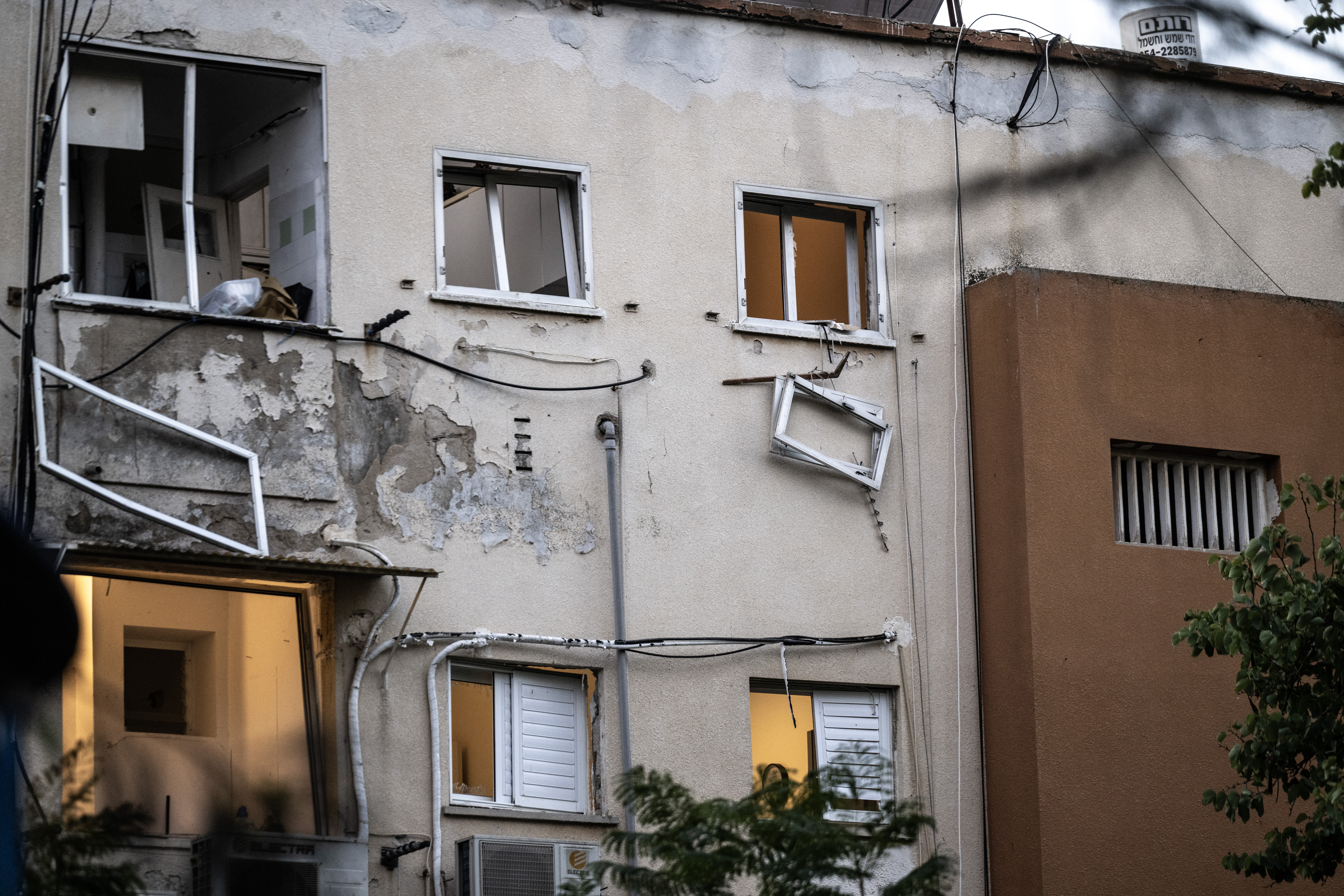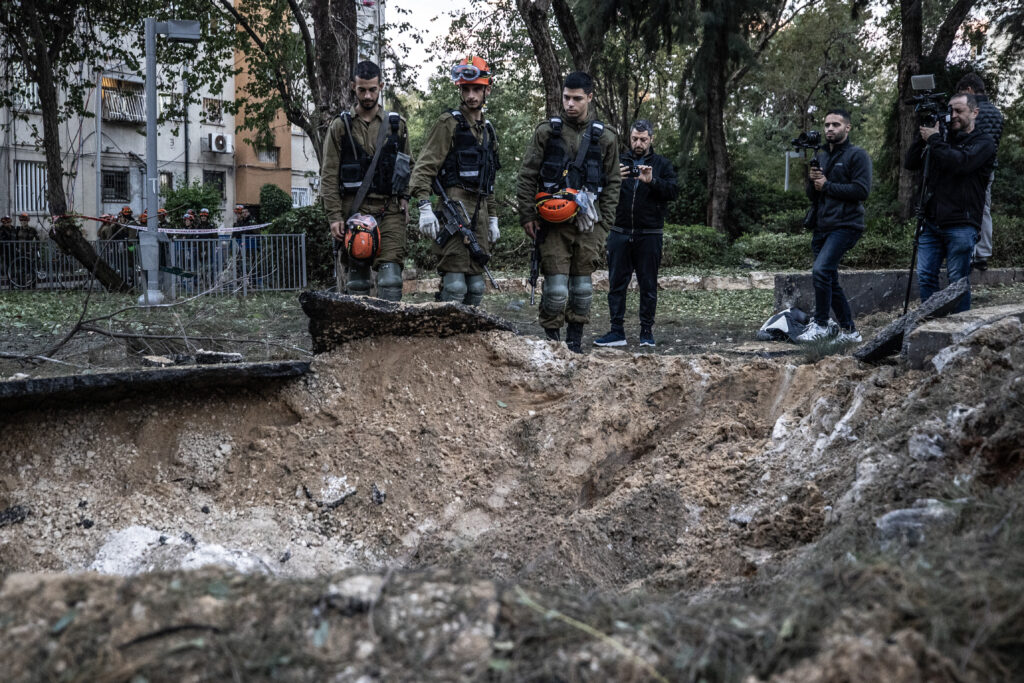
At least 20 Israelis were injured on Saturday when a missile launched from Yemen landed in the Tel Aviv-Jaffa area in central Israel.
The Israeli army confirmed the attack, stating: “A missile originating in Yemen impacted central Israel after interception attempts failed.”
According to Magen David Adom, Israel’s ambulance service, 20 individuals sustained minor injuries, mostly caused by broken glass from the explosion.
The Houthi group claimed responsibility for the strike.
In a statement, Houthi military spokesperson Yahya Saree announced that their fighters carried out “a military operation targeting a military site of the Israeli enemy in the occupied Jaffa area with a hypersonic ballistic missile.”
The announcement comes after the Houthis claimed multiple drone strikes on central and southern Israel on Friday and three more military operations against Israeli positions on Thursday, coinciding with Israeli airstrikes on Yemen’s cities of Sana’a and Al Hudaydah.
The Houthis, in solidarity with Gaza, which has been facing an Israeli genocidal war since Oct. 7, 2023, have targeted Israeli cargo ships or those associated with Tel Aviv in the Red Sea with missiles and drones, expressing a determination to continue operations until the end of the onslaught on the enclave.
Subscribe to our newsletter and stay updated on the latest news and updates from around the Muslim world!
Since the beginning of 2024, a coalition led by the U.S. has been conducting airstrikes that it said are targeting Houthi locations in parts of Yemen in response to attacks by the group in the Red Sea. The counterattacks have been occasionally met with retaliation from the group.
With the intervention of Washington and London and an escalation of tensions, the Houthis announced that they consider all American and British ships military targets.

Meanwhile, a report in Israeli newspaper Maariv says that Israeli military forces have faced significant challenges in countering Houthi missile and drone attacks since the beginning of the war on Gaza in October 2023.
Maariv’s report said that the Houthis have launched over 200 ballistic missiles and 170 drones at Israeli targets, severely testing Israel’s defense capabilities.
It added that Israel’s defense mechanisms, particularly the Iron Dome and other air defense systems, have struggled to cope with the evolving threat posed by the Houthis.
Although many missiles and drones have been intercepted by Israeli and American forces, the sheer volume and sophistication of the attacks have continued to strain Israel’s defenses, it noted.
The report emphasised that the Israeli military is facing significant difficulties in both defending against and responding to the attacks.
It acknowledged that since the war’s beginning, the Houthis have inflicted significant damage on the regional economy, particularly Israel’s.
The report criticized Israel’s military response and intelligence preparation, claiming that the country was unprepared for the threat posed by the Houthis.
“Israel was not ready – either politically or in terms of intelligence – to deal with the threat coming from Yemen,” the report said.
The Israeli military and intelligence agencies only began reacting after the Houthis’ missile and drone strikes intensified, according to the report.
Maariv stressed that efforts by the Israeli military, including airstrikes on Houthi positions in Yemen, were seen as little more than public relations gestures.
The report also highlighted the increasing involvement of Iran in supporting the Houthi forces.
“Iran has invested more in the Houthis in recent weeks following the collapse of the Shiite axis, making the Houthi movement a leader of this axis,” the report noted.
The failures of Israel’s air defense systems were underscored, with Maariv reporting that the “Arrow” missile defense system, Israel’s main line of defense against ballistic missiles, had failed four times in a row to intercept missiles, including three launched from Yemen and one from Lebanon.






















